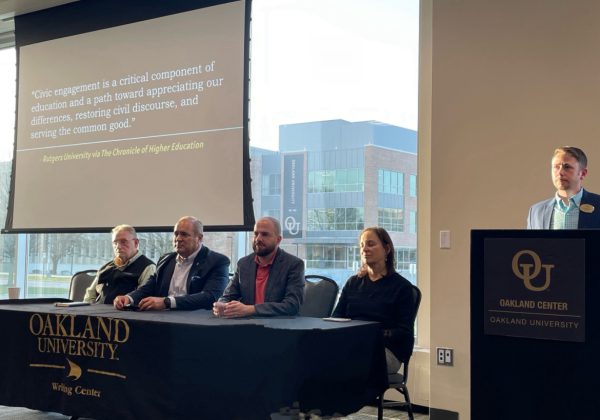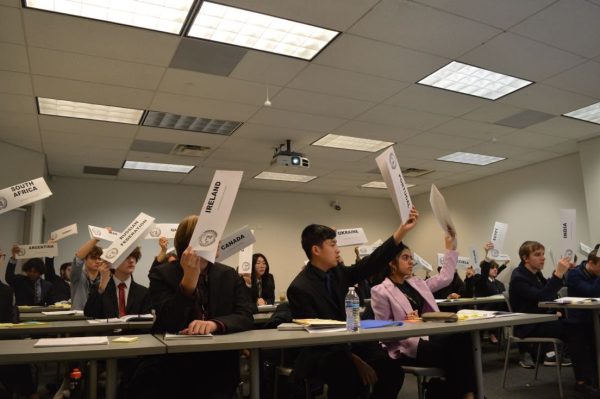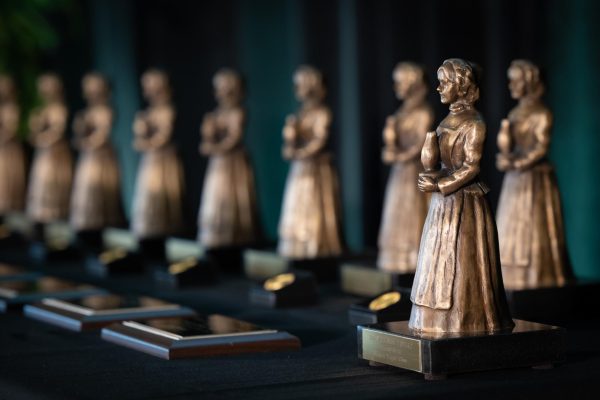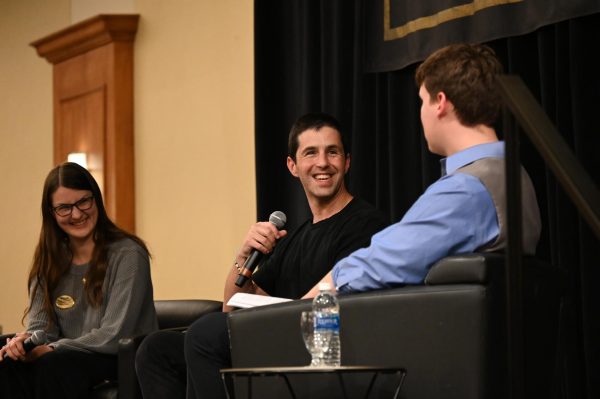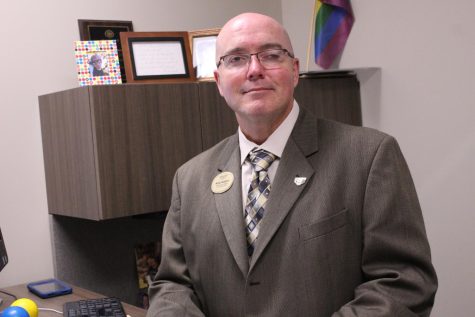Dr. L. Bailey McDaniel inspires students with passion for diversity issues
In Sandra Cisneros’ novel “Caramelo,” the Spanish term “hocicona” is used to describe someone who draws attention to unpleasant truths that are ignored by others. L. Bailey McDaniel is a hocicona.
McDaniel is a professor within the Oakland University Department of English whose classes and research focus on the works and lives of ethnic-American and female authors. She grew up in a large family of Maltese immigrants, moving around Oakland and Wayne counties, which is an experience that defines who she is.
Originally earning a degree in Economics from the University of Michigan, McDaniel spent five years in New York trying to get a career in acting. When that turned out to be unsatisfying, a pivot to teaching was the change she needed.
“I wanted to do something that I felt was more significant and contributed to other people,” McDaniel said. “Books have always been a constant companion in my life, so I wanted to share that passion with other people.”
In class, McDaniel’s passion for books is matched by her passion for teaching about ethnic and female authors.
“Since I was a very young person, I have always been aware of the imbalances of power that exist in our world,” she said. “The ways that literature and cultural studies explores and reflects back those imbalances seems like a compelling way to devote your time to study.”
The texts that McDaniel covers tend to feature disturbing and uncomfortable events including sexism, colorism and war-induced post-traumatic stress disorder (PTSD). This can make some students uncomfortable, something McDaniel accounts for.
“[Students] are always encouraged to ask questions or make comments, [and know] that there is no wrong answer, too,” student Natali Mladenovik said. “This makes us as students have a positive and encouraging environment to speak in, which I think makes our class participate more than any other random classroom down the hall.”
McDaniel is able to create an environment where students can speak freely about uncomfortable topics by simply being herself. Between her upbringing and field of study, McDaniel believes the diversity of professors at OU is lacking — something she believes is a disservice to all students.
“We are all better served, we are all better people when everyone has access to the playing field and multiple experiences and perspectives,” she said. “Research shows unequivocally that students of color benefit when they see themselves represented in faculty in almost too many ways to count.”
According to McDaniel, some of the ways students of color benefit from a diverse faculty are from having shared experiences with their professors, as well as the confidence boost that comes from seeing someone like them succeed.
Students of color are not the only ones to benefit from a diverse faculty.
“In my experience, white students at OU are curious, open minded and aware,” McDaniel said. “But if they only ever have white professors — because professors bring their experiences and their cultures to the classroom unavoidably — they are getting a narrower experience and education than they otherwise would.”
This desire for a diverse OU is not lost on students.
“I think it is really important that we have more diverse faculty because perspectives outside of the dominant culture should be heard by students and faculty alike to encourage an environment of equality and acceptance,” English and communication major Chanel Hermiz said. “I hope [McDaniel] is successful in her efforts.”
McDaniel currently has a book out, “(Re)Constructing Maternal Performance in Twentieth-Century American Drama,” and is working on her second book on shame and identity within African American drama.




